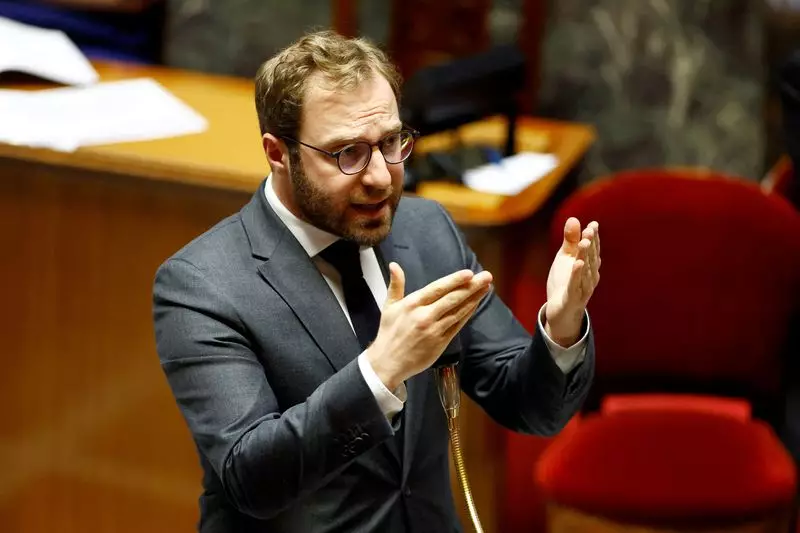France is currently experiencing significant political unrest as uncertainties surrounding its budget and governmental stability threaten to plunge the nation into deeper turmoil. According to Finance Minister Antoine Armand, this situation is paramount, with the country’s future hanging in the balance. The precarious nature of Prime Minister Michel Barnier’s government has sent tremors through the stock and bond markets, a reflection of the investor anxiety regarding France’s escalating deficit and political volatility.
The potential collapse of Barnier’s coalition government could mark a historic event, possibly becoming the first French administration to face dismissal via a no-confidence vote in over six decades. Such a development, if it occurs, would be unprecedented in modern French politics, shaking the foundations of not just France but Europe as a whole. With Germany also nearing elections, the fallout of a French government collapse could create a vacuum of leadership at a critical time, particularly with the U.S. entering another phase under President-elect Donald Trump.
At the heart of this political upheaval lies a contentious budget proposal aiming to address the country’s burgeoning public deficit. Barnier’s plan, which proposes €60 billion in tax increases and spending cuts, has met fierce opposition from various political factions. This resistance is not merely political posturing but a reflection of the profound discontent among the French populace. Leaders, including Marine Le Pen of the National Rally, have expressed a growing frustration that resonates deeply with the everyday citizens of France. “The French have had enough,” she stated, as her party prepares to back a no-confidence motion against the current government.
Interestingly, the combined strength of the left-wing coalition and the far-right National Rally presents a substantial threat to Barnier’s administration. Historically, the ideological divide in French politics has made coalitions challenging, yet the current situation demonstrates an unprecedented alignment of interests that transcends traditional partisan boundaries. This union is a clear indicator of widespread dissatisfaction, suggesting deeper societal issues that could have broader implications beyond immediate political survival.
Should Barnier’s government be ousted, he may need to resign, although French President Emmanuel Macron could opt to keep him in a caretaker capacity while seeking a new leader. This prospect of prolonged instability raises questions about the government’s capacity to address critical issues, especially concerning the budget, which must be enacted by December 20. Failure to do so could compel the caretaker government to resort to emergency legislation that would, regrettably, undermine any enforceable savings measures initially promised by Barnier.
The prospect of no new parliamentary elections until July further complicates the scenario, stalling any potential political solutions that could emerge from a reshuffle of leadership. The crucial interplay between financial strategy and political stability is emblematic of broader European challenges, embodying a period of reckoning not just for France, but for the European Union at large.
The current political landscape in France is tumultuous and fraught with uncertainty. The unfolding events demand careful scrutiny as they offer a lens through which to understand the complex dynamics at play in both domestic and continental politics. As France stands at this crossroads, the choices made by its leaders will undoubtedly shape the nation’s future for years to come.

